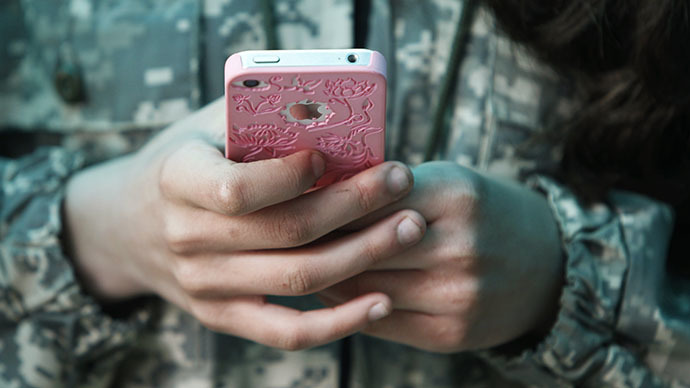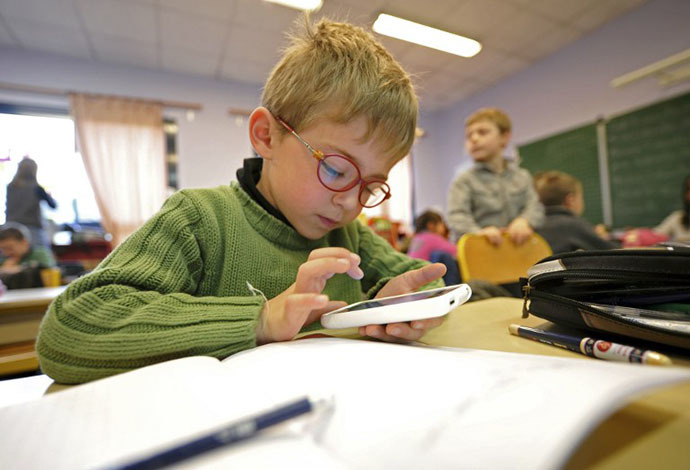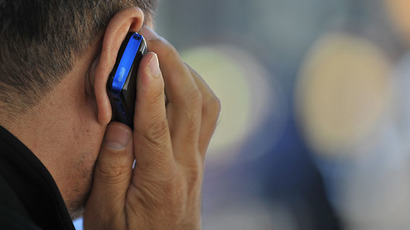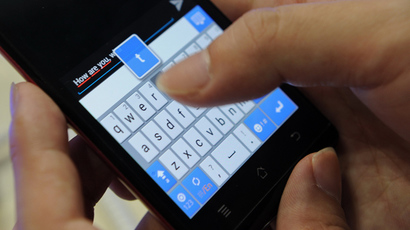New 'parent control' app remotely turns-off your kid's smartphone

With the traditional family dinner and other pastimes on the verge of extinction thanks to an array of distracting hand-held devices, mobile applications are now available for parents to remotely bloc access to smartphones and tablets.
Are you tired of your child behaving like Pavlov’s salivating
dog, mindlessly jumping for some smartphone or tablet every time
it rings, sings or vibrates, crashing the solemn family dinner,
or disrupting homework time?
Chances are you’re not alone. Since 2011, usage of smartphones
and tablets among young users has increased threefold, according
to Common Sense Media, a San Francisco based non-profit that
analyzes the effects of such technology on children.
But frustrated parents at wits’ end take heed. A group of mobile
app developers have introduced a new app called DinnerTime
Parental Control for iPhone or Android smartphones, which puts
the power switch back in the hands of parents, allowing them to
limit the time their children access their devices.
According to the developers, cheaper smartphones and tablets
means more kids who have the technology, which also means more
parents who feel they have lost control over the situation.
"The price of entry level smartphones and tablets have come down
a lot, and as a result, more and more kids have their own
individual devices," Richard Sah, co-founder of DinnerTime, based
in San Mateo, California, told Reuters.
The app allows parents to block access on a child's Android
smartphone or tablet so that they can focus their attention on
things like preparing for exams, reading a book and homework. The
designated break times go from 30 minutes to three hours. A
countdown feature lets the child know when the device will be
available for use again.

Sah said he got the idea to develop the mobile application by the
age-old tradition of family dinners, which he believes is
endangered by the prevalence of hand-held technology.
"Dinner time brings families together for quality time and to
have lots of different conversations. We want people to come
together for engaging conversations, rather than be distracted by
a tablet," he said.
However, at least one expert believes that new technology cannot
solve bad parenting.
Dr. Kimberly Young, the founder of the Center for Internet
Addiction, says parents need to regulate how much time
their children spend on their devices, while emphasizing that
mobile apps may not be the best way of handling the situation.
"I do not agree that any app is better than good old-fashioned
parenting in terms of treating internet addiction," said Young,
who expressed more concern in the age of the user.
"The larger issue is how young is too young," she told Reuters.
Security fears
Meanwhile, in these post-Snowden times, many people have become wary of mobile applications, which have been revealed to be a source of information for security agencies.
NSA using Angry Bird apps to spy on users
The US National Security Agency and its UK counterpart, GCHQ, are
able to acquire details on that person’s age, gender, and
location. The intelligence services are also able to ‘piggyback’
on third party advertisements that a user unwittingly receives
when they initially download an app. Those ads essentially
pinpoint where an individual is in the world.
At the same time, DinnerTime Plus allows parents to behave like
spies when it comes to their children’s viewing, giving them the
ability to supervise the apps their children use, as well as view
the apps in real time.













